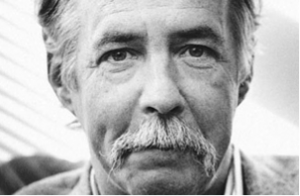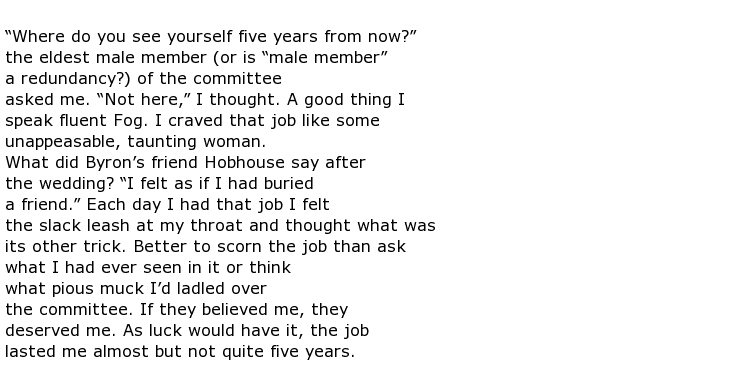 William Matthews has been described as “an alert and engaging” 20th century American poet and essayist. He had an unorthodox style though in that you could almost describe many of his poems as “essays in verse” where he seems to make no effort to include any standard poetic rhythm into the lines, or use rhyming couplets and the like. One of his poems is called Job Interview and it is literally a prose-like account of someone’s experiences getting and working in a job but turned into a 16-line “poem”. It looks like a poem but doesn’t actually read like one. He was popular though, winning multiple awards, gaining a Guggenheim fellowship and serving on numerous literary panels.
William Matthews has been described as “an alert and engaging” 20th century American poet and essayist. He had an unorthodox style though in that you could almost describe many of his poems as “essays in verse” where he seems to make no effort to include any standard poetic rhythm into the lines, or use rhyming couplets and the like. One of his poems is called Job Interview and it is literally a prose-like account of someone’s experiences getting and working in a job but turned into a 16-line “poem”. It looks like a poem but doesn’t actually read like one. He was popular though, winning multiple awards, gaining a Guggenheim fellowship and serving on numerous literary panels.
Matthews was born on the 11th November 1942 in Cincinnati, Ohio and progressed well enough through his school years to gain a place at Yale University. He graduated from there with a BA and, later on, went to the University of North Carolina to attain his masters’ degree. He was a prolific poet who trawled ordinary life experiences for his subject matter. He explored the passage of time and the nature of human consciousness while, at the same time, using his own passionate interests for further inspiration. He loved jazz music and followed basketball, so he wrote about all of this. He also adored his children and included them in some of his writing.
Critics have suggested that he wrote using rich metaphors and that he was a master of the well-turned phrase. Earlier work was described as epigrammatic and he favoured a free-form style. As he developed as a writer he made changes and received much praise for a more formal style. He incorporated the concept of the “deep image poem” into his work where one outstanding, powerful image is inserted into the middle of the verse, thus dominating the whole piece.
Here is the above-mentioned poem Job Interview which is very much prose-like in style:

He was certainly a prolific writer with eleven collections of poetry being published during a lifetime that was cut short by a heart attack. Earlier titles included Ruining the New Road (1970) and Sticks and Stones (1975). In 1996 his Time & Money won the National Book Critics Circle Award. It was also a finalist for the Lenore Marshall Poetry Prize but didn’t win. His son Sebastian published two posthumous collections. In 1989, a year after his father’s death, he published After All: Last Poems and, in 2004, Search Party: Collected Poems.
William Matthews also held a number of academic positions throughout his life at such establishments as the University of Washington in Seattle and Cornell University. At Emerson College in Boston he served as Writer-in-Residence.
He was President of bodies such as the Poetry Society of America, among others and was chairman of the Literature Panel of the National Endowment for the Arts. Right up to his death he was working at the New York City College as a professor of English. He had previously taught in a number of schools
William Matthews died of a heart attack on the 12th November 1997, just one day after celebrating his 55th birthday.

